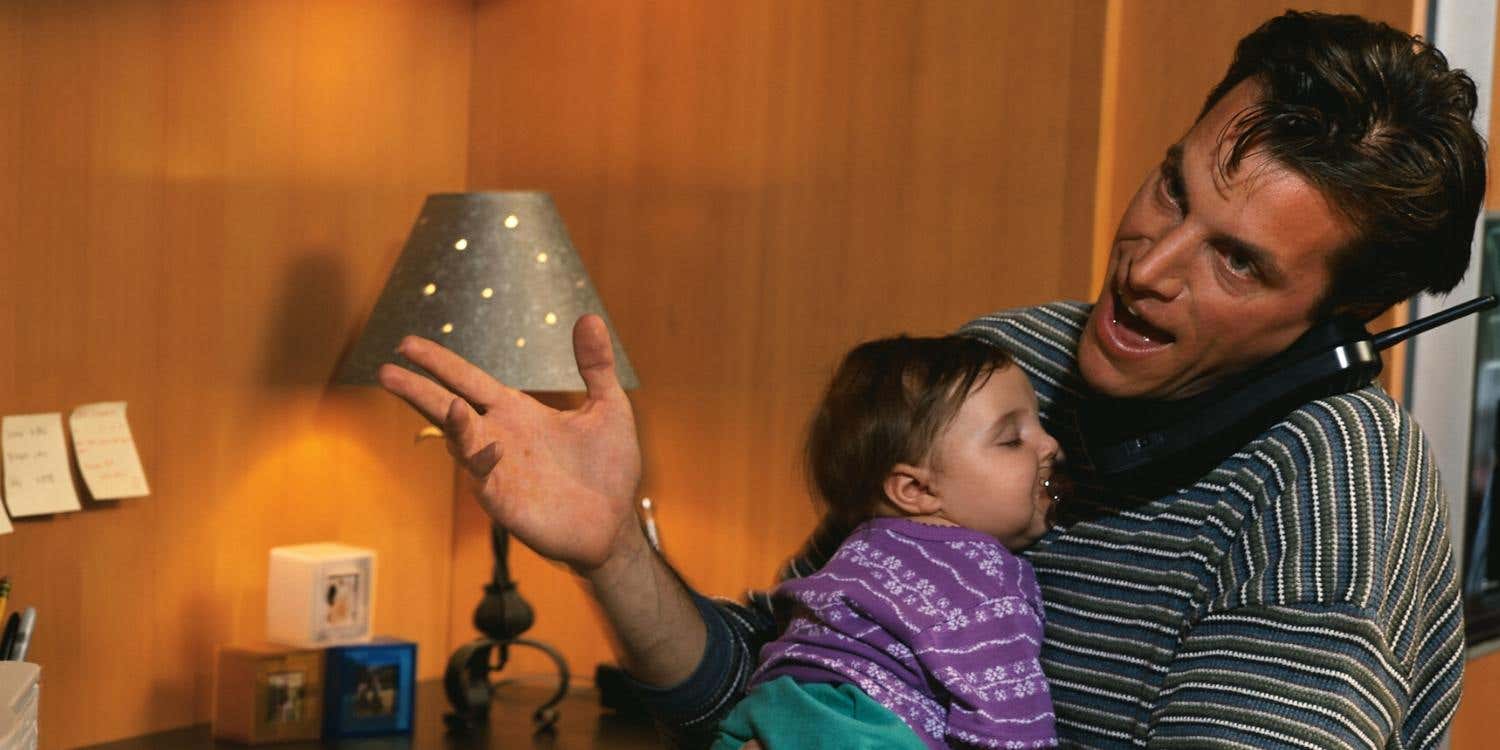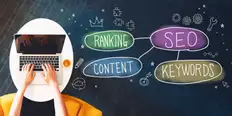Chat with Ava - Your AI Business Consultant
Hi I'm Ava, your AI guide to supercharging your business!
Whether you're already running a business or dreaming of starting one, I'm here to help turn your vision into reality using AI powered freelancers. Share your business goals, and together, we'll create a project that our talented freelancers can bid on. Let's make your vision a reality!
I have a business
I'm starting a business
Something went wrong while sending the conversation to your email. Please try again later.
You can only save your conversation once per hour. Please try again later.
Your conversation is too short. Keep chatting with Ava to enable saving.
9 interesting facts from the biggest productivity studies
There's plenty of research on how to maximize your productivity and here are 9 fascinating facts from the most prominent studies done so far
May 4, 2020 • 6 minute read
N
Closed User
Copy to clipboard failed, please try again after adjusting your permissions.
Copied to clipboard.

The science behind staying productive while working remotely
For most people, the motivation to join the gig economy lies in its promise of flexibility and independence. In fact, the 2019 Deloitte Global Millennial Survey shows that while only 6% of millennials and Gen Zs work as freelancers, 50% of them would consider this alternative to full-time employment. Even more, 61% would take gig assignments as a source of added income.
Yet, regardless of the superior work-life balance offered by this type of arrangement, it's important to note that freelancing does come with its downsides. The biggest of them is the uncertainty in terms of job security and income. In fact, all freelancers share a common goal: doing as much high-quality work as possible, in as little time as manageable. In other words, like all other economies, satisfying freelance work depends on productivity.
Fortunately, the world wide web is brimming with advice on how to be more efficient. Most articles will offer similar advice: plan, designate an office space, block out distractions. But while these methods do work great, there's also plenty of scientific research on which you could rely to maximize your output.
So, if you're looking for great productivity tips, take a look at these fascinating facts from the most prominent studies done so far.
Productivity techniques and technology
With work efficiency being as fascinating a topic as it is, it's not at all surprising that there are dozens of different productivity techniques you can try out. What's more, we now have access to technological solutions that could, potentially, cut our work hours in half – as long as we use them in the best way possible.
So what does science say? Is there empirical evidence to show that one way of working is better than another?
Well, there's not one single formula that can be applied to every worker or every job. Nonetheless, there have been some pretty interesting findings on how different strategies can help.
Most studies agree that the best way to work is to balance it with rest
The Pomodoro technique is one of the most popular on-off strategies out there. When used properly, it can increase focus and provide structure. Still, data-based research shows that there's an even better alternative to the prescribed 25 versus 5-minute formula. Apparently, the best ratio seems to be 52:17. This allows enough time to develop and maintain a deep focus, then allows resting and recharging for the next "active sprint."
Working more hours does not show better results. On the contrary
Entrepreneurs and freelancers have a strong tendency towards adopting the hustle culture. But, research has shown that working more could actually lead to a decrease in job satisfaction (which directly influences productivity) and a higher likelihood of making mistakes .
So, instead of reverting to 12-hour workdays, why not limit the time you have available to finish a task. You can do this by adopting a hard-stop time (e.g., promising to leave the office at 5 pm). Alternatively, you can use time management software to schedule both professional and personal commitments. No matter your choice, you'll find that a little bit of pressure can go a long way in helping you stay on track.
Multitasking may shrink the brain
We're all well-aware of the fact that we're spending too much time on our smartphones. A paper published by researchers from the University of Sussex in 2014 shows empirical evidence of the negative consequences of multitasking. Apparently, users who used more than a single multimedia device on a regular basis exhibited a smaller density of gray matter in the anterior cingulate cortex, a part of the brain in charge of cognitive and emotional functions.
So, if you don't have the intrinsic self-control to put down your phone while working, set up time limits, or download a website blocking app to help you focus on a single job at a time.
Distractions hurt efficiency
One of the reasons remote work offers such a boost in productivity is that it eliminates some of the most annoying distractions found in office spaces. These include ringing telephones, conversations, as well as the comings and goings of a large number of people.
Nonetheless, that's not to say that freelancers working from home don't have to deal with distractions. The Coronavirus pandemic (and social-distancing measures) has brought attention to just how difficult it can be to get things done with family members, pets, or children around.
According to science, a single distraction could lead to a 20% decrease in productivity . That's a good reason to invest in a pair of noise-canceling headphones, as well as to turn your smartphone off during work hours.
Lifestyle, wellbeing, and how they affect work
In addition to employing productivity solutions in the form of different strategies or software, it's also important to remember that physical and mental wellbeing can have an effect on productivity. How capable your brain is of handling mental challenges will depend on your overall health. So, if you're searching for ways to do some of your best work, it's not a bad idea to start taking better care of yourself.
Insufficient sleep won't just make you tired
According to a research paper published in 2010 , getting insufficient sleep cost companies $1967 per employee per year. But taking longer to tick off a task from your to-do list isn't the only side effect of feeling tired. In fact, sleep deprivation can cause memory issues and mood changes, make it difficult to concentrate, and hinder creativity. It also weakens the immune system and puts you at a higher risk of developing a chronic disease. Clearly it’s important to make it your mission to fix your sleep schedule by adopting a few simple but effective lifestyle changes. Your wallet will thank you.
Staying physically fit can make you smarter
If you're not exactly sure why all productivity tips encourage you to get moving, take a look at this study from 2019 . It found that young adults who worked out had better cognitive capacity, as well as faster and higher-quality neurological impulses compared to those who weren't in good shape. Even more, aerobic exercise has been shown to slow neurological aging symptoms . This means that it might not be such a bad idea, after all, to listen to those writers and do some squats, jumping jacks, or push-ups in those 17 minutes you've put aside for rest.
What you eat influences how you think
One common pitfall of remote work is developing the bad habit of eating junk food. After all, it's so much more convenient to get take-out than it is to cook a whole meal. The types of foods most of us tend to choose (the Western diet) have been linked to ailments such as inflammation, autoimmune disease, chronic conditions, and depression. Carbs, which make up a significant part of such a diet, have also been shown to directly influence productivity by triggering insulin and serotonin production . Furthermore, abnormal glucose levels can negatively impact attention and memory, as well as cause sadness or anxiety .
The good news is that there's a very simple solution to this: a diet based predominantly on whole foods, including plenty of fresh vegetables, good fats, and high-quality sources of protein. Supplements such as a multivitamin, Omega-3, or vitamin D could also help you focus. Still, make sure you're choosing products that are of the highest possible quality (which doesn't equate to expensive). Also, don't forget to do your research if you have specific dietary needs, as the majority of supplements aren't vegan-friendly unless specifically noted.
Stress is bad
This isn't exactly news, now, is it? But, if you're finding it difficult to do your work efficiently, or you're feeling forgetful, maybe you should check in with yourself regarding stress levels. While a little bit of stress can drive us to do great work in the short-term, long-term exposure could significantly impact memory and overall health. In fact, a stressful life period may still cause memory-related consequences three years after it occurred .
What does this mean for freelancers who want to be more productive? It's simple: make sure you're practicing mindfulness, taking good care of your mental health, and don't take on more than you can handle. It's also not a bad idea to try yoga or meditation every once in a while.
Environmental factors can increase productivity
Finally, don't forget that your ability to solve tasks efficiently won't just depend on how you work or how healthy and happy you are. There's also the question of your office space.
You can use a few simple yet effective hacks to signal to your mind that it's time to get down to business. These include turning the thermostat to 69° Fahrenheit , choosing lighting that will help you concentrate, and adding some greenery to your workspace.
Final words
There are many things you can do to increase your productivity. They include anything from adjusting your workflow to investing in software or hardware solutions, and even to making lifestyle changes that will allow your mind to become more efficient at solving complex or creative tasks. Yet, through all this, it's important to remember that the best driving forces of efficient work will always be job satisfaction and motivation. Fortunately, being a freelancer pretty much gives you all the freedom you need to build a highly fulfilling career.
Tell us what you need done
Enter your project name
Related Stories
Talk to one of our Technical Co-Pilots to help with your project
Recommended Articles Just for You

Most of us are working from home right now by necessity rather than choice, but should you continue working remotely when the Covid-19 crisis is over?
6 min read

With Covid-19 keeping us all at home, many of us are struggling to keep working productively. Follow our tips to get yourself back on track.
7 min read

It's a very stressful time in the world but there is hope. In this post we teach you 4 powerful breathing exercises to soothe your anxious mind.
5 min read

Covid-19 means most of us are adjusting to working from home. Check out our list of the best tools to keep you productive and stress-free
8 min read
Thanks! We’ve emailed you a link to claim your free credit.
Something went wrong while sending your email. Please try again.
Loading preview
Permission granted for Geolocation.
Your login session has expired and you have been logged out. Please log in again.




